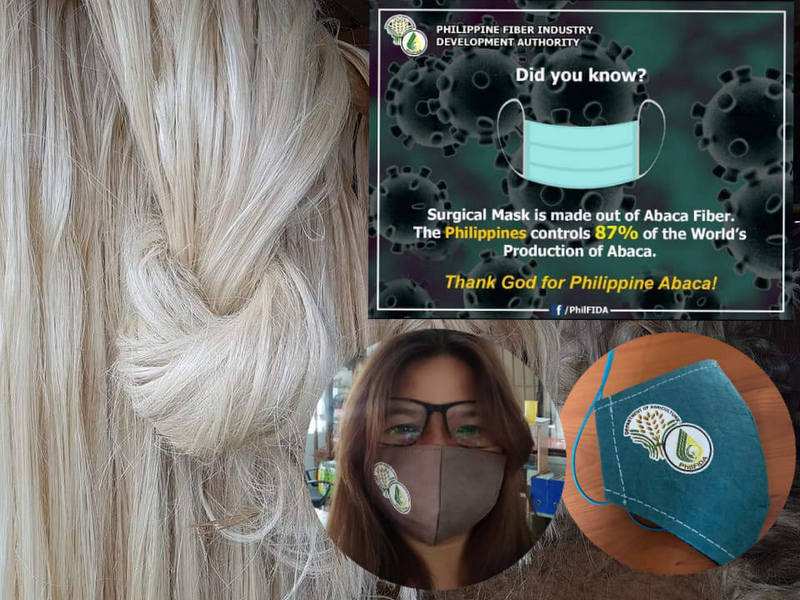Not many know that the Philippines is the world’s biggest producer and supplier of abaca fibers worldwide. Abaca, also known as manila hemp, is actually one of the most preferred materials in making face masks and personal protective equipment (PPE). The demand for it is very high in the midst of the global pandemic caused by COVID-19.

We don’t only export abaca fiber as raw materials for face masks worldwide, there are locally made ones also
The Philippine Fiber Industry Development Authority (PhilFIDA) is currently helping abaca producers step up their efforts to meet the fast-growing demand and supply the shortage in face masks, PPEs and other medical fabric. Those are the main protection methods used, particularly by frontliners, all over the world against COVID-19. The new normal also requires everyone to put on face masks. Thus, local and international demand is expected to further increase in the coming months.
PhilFIDA is not only promoting the export of abaca fiber, but is also encouraging the production of local face masks. A company in Misamis Oriental called Salay Handmade Products Industries Incorporated (SHAPII) has produced 7XB Face Mask, which is made from abaca. The fiber is converted to special filters to serve as protection from the virus.
According to the Department of Science and Technology (DOST), the abaca mask is seven times more efficient than a regular cloth mask. The abaca fiber provides better filtration, density, porosity, and water repellency compared to other synthetic materials. Masks made from abaca are also environment-friendly and biodegradable because they do not contain plastic or harmful chemicals.
The revival of the local abaca industry will be a big help to the 90,000 farmers involved in growing abaca. According to PhilFIDA, 51 of the 81 provinces in the country have abaca farms. The top abaca producers are Bicol (particularly Catanduanes), Central Visayas, Davao Oriental, Cotabato, and Caraga. Abaca is an important raw material for tea bags, coffee filters, food packaging, textile, clothing, shoes, bags, wall coverings, sheets, and even paper money. Japanese currency notes (Yen) actually contain up to 30% abaca.
The abaca sector alone contributes Php4.7 billion to country’s economy annually, so it deserves all the support it needs. There are also many other natural fibers that are locally produced, such as bamboo, buri, coir, cotton, jute (saluyot), nipa, pandan, piña, raffia, ramie, rattan, rice straw, silk, talahib, vetiver, and waterlily.
Let’s continue to support local industries and Filipino products!
Do you have a story for the WhenInManila.com Team? Email us at story.wheninmanila@gmail.com or send us a direct message at WhenInManila.com Facebook Page. Interact with the team and join the WhenInManila.com Community at WIM Squad! Join our WhenInManila.com community on Viber, as well!




